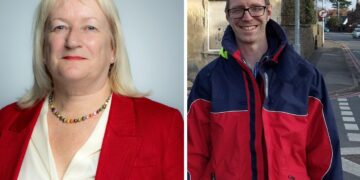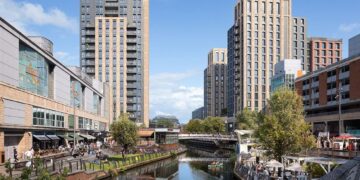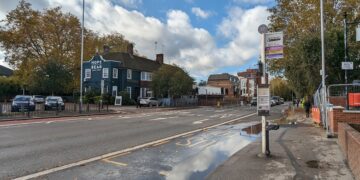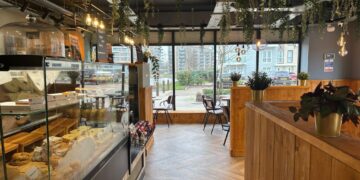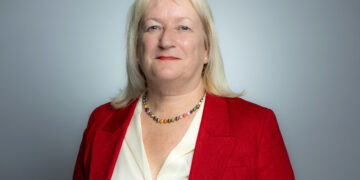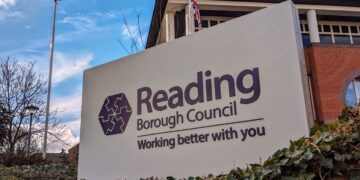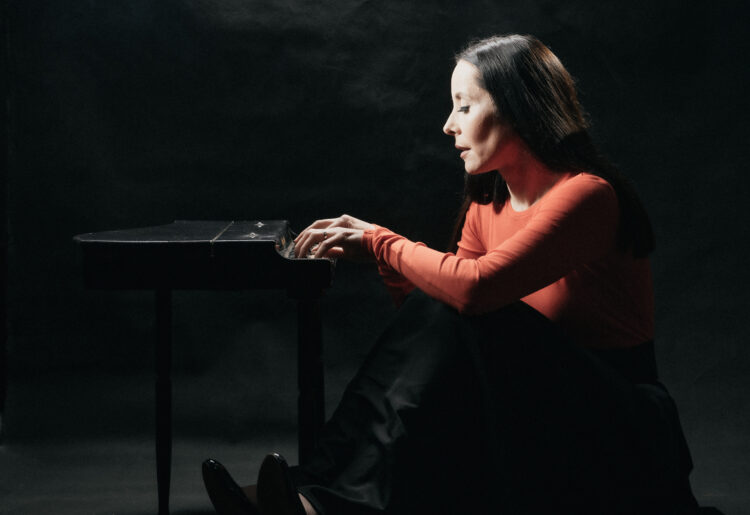NERINA Pallot has garnered nominations in some of the most prestigious and celebrated accolades in music through decades of songwriting and live performance.
However she is joining the growing throngs voicing serious concerns about what is happening to the industry, to artists, to cultural businesses, and the towns which depend on them.
As such, her latest tour–All Roads Lead To–seeks to redress the balance.
“Venues are being decimated–in my 25 years of touring I’ve seen so many venues not being able to make it work.
“I’ve been fortunate to play big venues, but I love the smaller ones; they’re where I learned how to play live, and I grew up in Jersey, which is really starved of a lot of live music.
“If anyone came from the mainland or from abroad to play, it was a big deal, so my thinking behind this tour is to go to those smaller towns and venues.”
Pallot brings with her not only decades of experience in honing her craft, but also recognition in the form of Ivor Novello and Brit Awards nominations, critical acclaim, and work with some of the most celebrated musicians of the last thirty years.
“I’ve been doing this for a long time, and I’m fortunate to have a strong, loyal following, which means I’m able to do it.
“But I really worry about new artists who won’t be able to make it unless they have access to those places, and unless they get a kind of viral Tiktok moment, we’re cheating ourselves out of proper new live talent.”
She explains”It’s not just the music industry, audiences struggle with costs too; by the time you’ve bought tickets, travelled… it’s a lot out of people’s income.
“There’s so many multitudinous reasons that music is having a problem; there’s no one easy answer to it all.
“But I think we need to take an old-fashioned approach: stay local.
“Young people especially are looking at so much debt, so with university they’re staying home and learning locally, which happens a lot in America.
“I think they’re going to formulate a different way of living, staying in their home towns and building more community there.
“But honestly, while I think that might be optimistic, that’s a future I’d like to see.”
Despite her decades of experience, Nerina has an eye for a fresh approach with each new album.
She admits, however, that it isn’t always completely by design: “I can’t help a certain level of ineptitude–I’ve finally accepted it.
“When I started out in the early 2000s, it was such a different landscape to navigate as a female artist.
“Gender was always attached to what I did, and it drove me f***ing nuts. I love that we have acts like The Last Dinner Party, Haim and Wet Leg where people forget that it’s female-led, and in such a good way.
“They’ve shown that there’s no specific way you ‘have to be’ as a woman in music–it’s not a straight choice between either being a riot girl or just being in your underwear.
“I didn’t fit into either of those, and that meant I always felt like I was failing.”
And this feeling of being something of an outsider has led to Nerina’s distinct approach–and one which has garnered
“It wasn’t obvious to me how I was going to make my way into the industry, and it feels like I came from a place of disadvantage.
“But you also just have to get on with it and not worry about what kind of leg-up you haven’t had.
“There is an arrogance about artists who say that they’re tortured; I’ve definitely had periods of my life where I felt incredibly awful, and creativity has been the only way to stop it.
“But there’s only so long you can survive like that– we’ve lost some of the most remarkable talents.”
She cites Amy Winehouse, among those: “She created absolutely extraordinary work, and that was directly related to where she was emotionally and mentally, which is tragic.
“So do we want people to keep mining their tragedy and end up dead, or do we balance making something different.
“People are struggling with enormous challenges and life pressures who just don’t have any creative outlet either.
“Where do they put that pain– where does that go? I think that’s the role of an artist comes in.
“That’s something I have in my social media biographies: ‘I go there so you don’t have to.'”
There is a well-established relationship between the communal sharing of human experiences and live music.
Despite this, it is one which still took some time and experience to truly foster, Nerina explains.
“My reasons for playing live have really shifted as I’ve grown older; when I started I was very scared, and I didn’t really think of myself as a performer.
“I always wanted to be a songwriter first and foremost, so live felt sort of torturous, but after having performed a lot of cover gigs, you start to feel like you can do it, and a level of ego starts to kick in, to be honest.
“The validation that comes with it, that swagger, can be quite an empty reason, and becoming a mum really changed my approach.
“Now I try as much as possible to be a vessel for those songs, and for what they might mean to people.
“I almost want to be invisible, now.”
However there is still an art, literally and figuratively, to translating recorded music into the live space.
“Every show is different, of course, and I’m always open to following the energy in a given room.
“There’s moments where you choose a rarer song that nobody is expecting, and that can mean someone in the room is having a real moment with it.
“Whenever I see an artist I really love and they crank out a rarer B-side I wasn’t expecting to hear, I become a blubbering mess.
“To give that experience to just one person is fantastic.”
Nerina Pallot, All Roads Lead To, is coming to South Street Arts Centre on Thursday, September 18, where she will be joined by Kah’Nya.
Full details and tickets available via: whatsonreading.com

